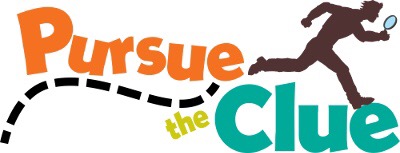I’ve been studying bestselling novels of late. I’m trying to get a feel for what is working and why; suss out the author’s special sauce that seems to be speaking to readers. I have to admit, sometimes I’m befuddled when the quality of the prose is lacking or the story drags in too many places. Or worse, when the characters are whiney and aren’t particularly sympathetic. But after some careful comparison, I think I’ve figured out the secret. Regardless of genre, what keeps a reader going is nothing more than a big question. A mystery.
Who among us doesn’t love to be tempted and tantalized with secrets, or burning desires, yet uncovered?
THE BIG QUESTION
As an author of historical fiction, I enjoy weaving in sparkling details—the frothy petticoats of a princess, a lamb bone used for buffing marble, or steam cars cranked by hand. But they won’t keep a reader going for the long haul through the novel’s twists and turns. In literary fiction, the beautiful writing is what you come for, but you keep reading to see how the character changes, how they confront the big issue the author has chosen for them.
You keep reading because you don’t know what will happen, but you must find out. I mentioned historicals and literary fiction because they can be less plot-driven than some other genres. The same goes for some women’s fiction, but the end result is the same: all good fiction is riddled with mysteries.
With my first few books, I set these mysteries up without realizing they were there. As I have evolved as a writer, I’ve discovered how important it is to create these questions on purpose and to plant them strategically. As you might suspect, the most important question is the HOOK or the mystery that is connected to the premise of the novel.
For example, in Pride and Prejudice by Jane Austen, we worry whether or not Elizabeth Bennett will fall in love, or be a spinster in want of a home after her father dies, simply because her prejudice gets in the way? This is the central mystery. Once this question is planted, the author expertly layers in others to support the premise because:
ONE CENTRAL QUESTION ISN’T ENOUGH
Remember we are tempting the reader to keep going so we must weave in a series of smaller questions to keep the plot moving forward. Let’s look at Pride and Prejudice again. Austen peppers the narrative expertly with mysteries.
Will Elizabeth meet an available gentleman at Mr. Bingley’s ball?
Will she make amends with the proud Mr. Darcy?
Will the family’s farm be saved?
STORY THREADS CONVERGE
Though there should be a litany of unanswered questions, they must be connected to the protagonist’s quest and motivations in some way, or they will clutter the narrative and confuse the reader. In these examples below, note how these questions 1.) propel the plot forward, 2.) reveal important traits or desires about the protagonist and his/her motivations, and 3) support the larger mystery or hook.
The Hunger Games Trilogy by Suzanne Collins: Will Katniss survive in a dystopian hell? Will she choose Peeta or Gale? Can she keep Prim safe? Will the revolt against the Capital be successful?
A Discovery of Witches by Deborah Harkness: Will Diana accept who she is and come to terms with her powers? What exactly is her witchy family’s past? Will she fall for Matthew? Will she survive the attack from her enemies?
Revolution by Jennifer Donnelly: Can Andi find some semblance of peace again after her brother’s death and parents’ divorce? How did Andi lose her brother? What secrets will she uncover in that old diary from the French Revolution? Will she allow herself to fall in love? Will she ever grasp that her brother’s death isn’t her fault and forgive herself?
The Fault in Our Stars by John Green: What does it mean to live, truly live, and what is the emotional cost when we’ll just die anyway? Will Hazel relax into being a “normal” teen and allow herself to fall in love with Augustus? To meet her idol –an author– in person is her dream. What is he truly like in person, and will she be satisfied with his answers to the burning questions she has about his work? Can Hazel recover enough to go into remission, or will she die of cancer after all?
YOUR WORK IN PROGRESS
What is the premise, or big hook of your novel?
What’s the big unanswered question of each act?
What smaller questions have you weaved into each act to support your mc’s motivations and goals? The story’s central mystery?
Thank you, Heather Webb, for allowing us to republish your Every Good Book is a Mystery, Even When it’s Not blog.
To read more of Heather’s blog please visit Heather Webb
